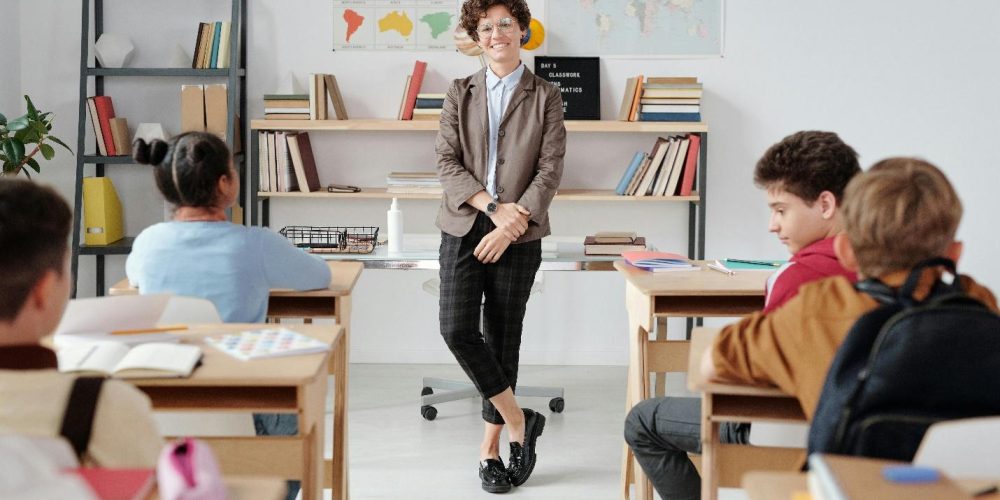Elementary education requires more than just academic teaching; it demands the skills to nurture and effectively guide young minds. In an era where education constantly evolves, elementary educators face the challenge of adapting to new methodologies, technologies, and diverse student needs. This article aims to shed light on key essential skills for elementary educators. These skills help enhance teaching effectiveness and enrich students’ learning experience, preparing them for a bright future.
Patience: Nurturing Young Minds
Teaching young learners who are at the beginning of their educational journey requires immense patience. Children at this age are just starting to discover the world academically, and their pace of learning varies significantly. An educator’s patience can transform the classroom into a calm and understanding environment where students feel valued and heard. It’s about allowing students the time to grasp concepts, ask questions, and make mistakes. The patience of a teacher often translates into a child’s confidence in learning.
Cultural Competence: Fostering an Inclusive Environment
In our increasingly globalized world, cultural competence is more important than ever, and it starts with proper education and training. Programs such as a Bachelors in Elementary Education online can play a crucial role in preparing future teachers for a diverse group of learners. This skill involves understanding, respecting, and incorporating diverse cultural perspectives into teaching. It’s about creating an inclusive classroom environment where all students feel valued and where differences are celebrated. Online programs often provide a broad range of perspectives and resources, helping educators develop the cultural competence needed to effectively address and prevent biases and stereotypes and to teach students the value of diversity and inclusion.
Technological Proficiency: Embracing Digital Tools
In today’s digitized world, being tech-savvy is no longer optional for educators. The classroom has extended beyond traditional boundaries, often incorporating digital tools and online resources. Educators need to be comfortable with technology in order to enhance their teaching methods and prepare students for a tech-centric future. Learning how to integrate technology effectively in teaching ensures that educators are well-equipped to harness digital tools for educational success.
Communication: The Heart of Teaching

Effective communication is pivotal in elementary education. It’s not just about conveying information; it’s about doing so in an understandable, engaging, and age-appropriate way for young learners. Elementary educators must master the art of breaking down complex concepts into simpler ideas that children can easily grasp. This skill extends beyond the students, encompassing clear and empathetic communication with parents and colleagues, forming a bridge supporting the child’s educational journey.
Creativity: Sparking Imagination
Creativity in teaching goes a long way in capturing the attention and imagination of young students. It involves thinking outside the box and presenting learning materials in an engaging and enjoyable way. For example, a math lesson might be turned into a game or a history lesson into a storytelling session. Creative teaching methods make learning fun and encourage students to think creatively, fostering a love for learning that can last a lifetime.
Empathy: Understanding Each Child’s Needs
Empathy is a key skill for educators, particularly in understanding and addressing the diverse needs of each student. It involves recognizing that each child has a unique background, learning style, and emotional makeup. An empathetic teacher is able to connect with students on a deeper level, making them feel safe and understood. This connection is crucial in nurturing a child’s emotional and social development alongside their academic growth.
Classroom Management: Creating a Conducive Learning Environment

Classroom management is essential for creating a learning environment where students can thrive. This includes establishing rules, routines, and expectations that promote discipline while also allowing students the freedom to explore and express themselves. Effective classroom management involves being fair, consistent, and respectful, ensuring that each child feels a sense of belonging and safety. A well-managed classroom reduces distractions and disruptions, allowing for more effective teaching and learning.
Adaptability: Responding to Changing Circumstances
In the ever-changing world of education, adaptability is a skill that cannot be overstated. Flexibility is key, whether it’s adapting to new educational technologies, curriculum changes, or diverse student needs. An adaptable teacher is able to modify lesson plans on the fly, switch teaching strategies to better suit the learning styles of their students, and remain calm and resourceful in the face of unexpected challenges. This skill is particularly important in today’s diverse classroom settings, where educators must cater to a wide range of backgrounds and abilities.
Continuous Learning: Staying Informed and Up-to-Date
The field of education is constantly evolving, with new research, teaching methods, and technologies emerging regularly. As such, educators must be committed to continuous learning. This can involve attending workshops, participating in professional development courses, or simply staying up to date on the latest educational research and trends. By continually enhancing their knowledge and skills, educators improve their teaching and model the value of lifelong learning to their students.
Collaborative Skills: Working with Colleagues and Parents
Collaboration is a crucial skill in education, involving working effectively with colleagues, administration, and parents. A collaborative teacher understands the importance of teamwork in creating a supportive educational environment. This includes sharing best practices with colleagues, addressing student needs, and engaging with parents to ensure a cohesive approach to each child’s education. Effective collaboration leads to a more holistic approach to teaching and learning, benefiting the entire school community.
Fostering Future Growth
In conclusion, the role of an elementary educator is multifaceted, requiring a diverse set of skills to meet the challenges of modern education. From patience and empathy to collaboration and cultural competence, each skill plays a vital role in creating a nurturing and effective learning environment. By continually developing these skills, educators can ensure they are providing the best possible education for their students, preparing them for future success. Ultimately, the growth and development of students are the most rewarding aspects of teaching, and by honing these essential skills, educators can make a significant impact on the lives of their students.






